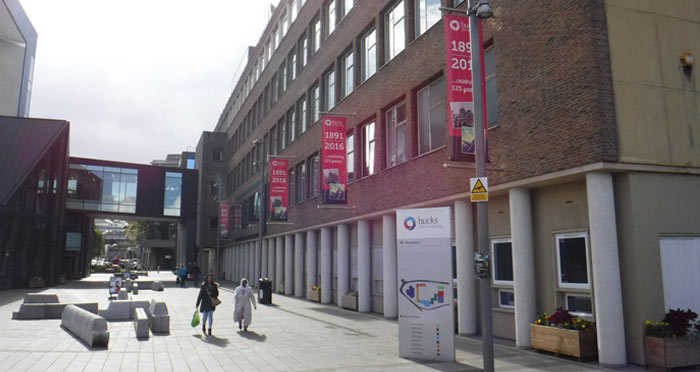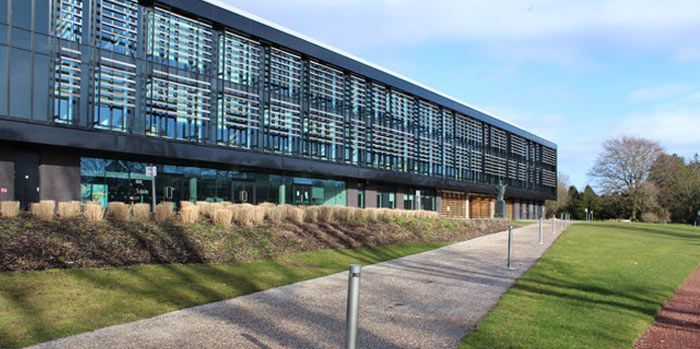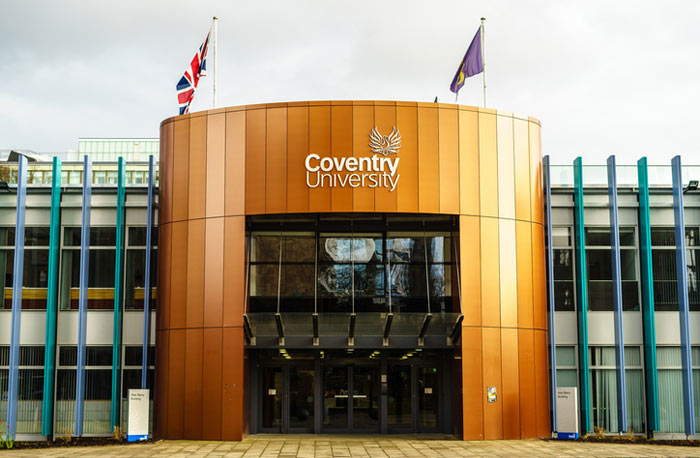If you’re studying mathematics, you might be pleased to know that a vast proportion of history’s most notable mathematicians have in fact skipped higher education, with much of their accomplishments and great discoveries owing all credit to dedicated self-instruction and an innate passion for mathematics. Read on to learn more about their backgrounds and accomplishments.
1. Srinivasa Ramanujan
Born in British India (present-day Tamil Nadu, India) on December 22, 1887, Srinivasa Ramanujan was one of the world’s most renowned mathematicians of his time, having made notable contributions to various areas in mathematics, such as the elliptic functions, continued fractions, and infinite series, and left a particularly significant mark in the area of analytical theory of numbers.
From a young age, Ramanujan was evidently demonstrating an instinctive flare for numbers and mathematics, his first major inspirational flame ignited by a mathematical book he obtained at 15 years old. The teenager felt enthused to add more to the book’s collection of theorems, developing his own mathematical notions and formulas, and beginning a journey of discoveries that would eventually lead him onto a well-recognized stage of mathematical elites.
Despite his genius, Ramanujan was unemployed and suffered immense financial struggles throughout his short life. His innate mathematical abilities, however, were undoubtedly impressive, and following a correspondence with the British mathematician Godfrey H. Hardy, he was granted a scholarship from Trinity of College, Cambridge in the UK – though surprisingly, he didn’t major in mathematics, and graduated with a Bachelor of Science degree by research (now referred to as a PhD).#
2. Stefan Banach
Considered to be one of the world’s most renowned mathematicians of the 20th century, Stefan Banach was the founder of modern functional analysis, and contributed to the development of the theory of topological vector spaces, as well as innovations in the theory of measure and integration. During his childhood, Banach was sent by his father to be raised by a family other than his own, though the pair continued to maintain a good relationship. He lived in decent financial stability and was encouraged to make use of his academic talents, which were recognized from an early age.
Following the end of World War I, Banach was granted an assistantship at the Lwow Polytechnic (now the Lviv Polytechnic National University) with the help of Professor Hugo Steinhaus, a fellow Polish mathematician whom he’d met two years prior. He managed to receive a doctorate without graduating from university.
3. Oliver Heaviside
Oliver Heaviside was an English self-taught mathematician and physicist, born in London. He predicted the existence of the ionosphere, the layer of the Earth’s atmosphere which reflects radio waves, and devoted much of his work to investigations of electricity, using operational calculus (now called the method of Laplace transforms) to study transient currents in networks.
Growing up in an impoverished area of London in the mid-19th century, the young Oliver had a troubled childhood riddled with a severe case of scarlet fever, which left him partially deaf. It was due to this impairment that he faced difficulties making friends at school, and he eventually left formal education at the age of 16. Despite all this however, Heaviside continued to pursue learning, and with the support and guidance of his uncle Sir Charles Wheatstone (an early telegraph inventor and well-known musical instrument maker), he studied languages, music, and telegraphy. He then used his impressive knowledge and skills to secure a job as a telegraph operator in Denmark, and it was here that he applied his mathematical knowledge to the question of why signals from England to Denmark traveled at a faster rate than those sent from Denmark to England.
4. Mary Everest Boole
A self-taught mathematician who was forced to drop out of school at the tender age of 11, Mary Everest Boole is best known for her written work on mathematics, such as Philosophy and Fun of Algebra, and for her progressive teachings of mathematics to young children, which included the use of fun activities to help with their learning.
Throughout the first part of her childhood, Boole lived in France, where she was privately schooled in mathematics. She then had to return to England at the age of 11, though this didn’t stop her from pursuing her interest in mathematics by self-training, and she eventually began receiving lessons from mathematician and Queen’s College professor, George Boole – who also became her future husband.
It was during a post she briefly secured as a librarian at Queen’s, that Boole discovered her passion for teaching. Unfortunately, at the time, college rules were clear in that women were not allowed to teach, so instead, Boole acted as an unofficial mentor to students, demonstrating her playful teaching techniques which we still use in classrooms today.
5. Florence Nightingale
Although Florence Nightingale, dubbed the Lady with the Lamp, is better renowned for her major heroic contributions to nursing during the Crimean War, most of us neglect – or are unaware of – her standing as a gifted statistician. From an early age, Nightingale exhibited a distinguished flair for mathematics, and excelled in the subject with the guidance of her father. She would later put her learnings to good use in order to improve the quality of medical care in the UK.
She dedicated much of her efforts to collecting and examining figures which brought to light the dangerous impact of poor hygiene in hospitals, identifying it as the main culprit for patient deaths and consequently serving to drastically prevent deaths in both military and civilian healthcare facilities at the time.
Florence Nightingale was also among the first people to use circular diagrams as visual aids for representations of data, and is credited with the invention of the polar area graph, also known as the ‘coxcomb chart’.
6. Benjamin Banneker
Although Benjamin Banneker is best known for his work as an African-American scientist and civil rights leader, he was undoubtedly a multi-gifted individual, having excelled likewise in mathematics and applied his knowledge and skills to help survey the original borders of the District of Columbia. At some point in his life, he even exchanged letters with the soon-to-be US President, Thomas Jefferson (who held the idea that black people were less intelligent than white people), on the topics of slavery and racial equality.
Coming from a background of little formal education, Banneker relied vastly on self-instruction. He was the first scientist to study the relativity of time and space, with his discoveries even said to surpass those of Einstein’s by two centuries. One of his successful predictions was the solar eclipse that occurred on April 14, 1789, a forecast that was denied by even the most prominent scientists and astronomers of the time. Banneker was also the first to note in his written work that the Star of Sirius is not a single star, but two – a theory that was only confirmed when the Hubble Telescope was launched over 200 years later.
7. Thomas Fuller (‘Virginia Calculator’)
Concluding our short list of famous mathematicians who didn’t go to university, is probably the most unconventional and extraordinary story of all: Thomas Fuller, who was dubbed ‘Virginia Calculator’, was a native African who was kidnapped from his homeland at the age of 14, and sold as a slave to a planter. Those around him very hastily picked up on his extraordinary God-given mathematical abilities, and he was eventually discovered by antislavery campaigners who used him to overtly challenge the false notion that blacks were mentally inferior to whites.
Although very little is known about Fuller’s life, there are authenticated historical records which state that when he was about 70 years old, two natives of Pennsylvania, William Hartshorne and Samuel Coates, happened to stumble across his neighborhood, and having heard of his astonishing skills in arithmetic, sent for him and asked him a series of difficult mathematical questions, such as: how many seconds there were in a year and a half, and how many seconds a 70 year-old man has lived. To each question, Fuller provided extraordinarily accurate answers within an incredibly short amount of time.
Fuller – who died at the age of 80 – never learnt to read or write, a fact which has lead modern historians to conclude that he most certainly acquired his mathematical abilities long before he arrived in the US.
Want more content like this? Register for free site membership to get regular updates on your own personal content feed.









